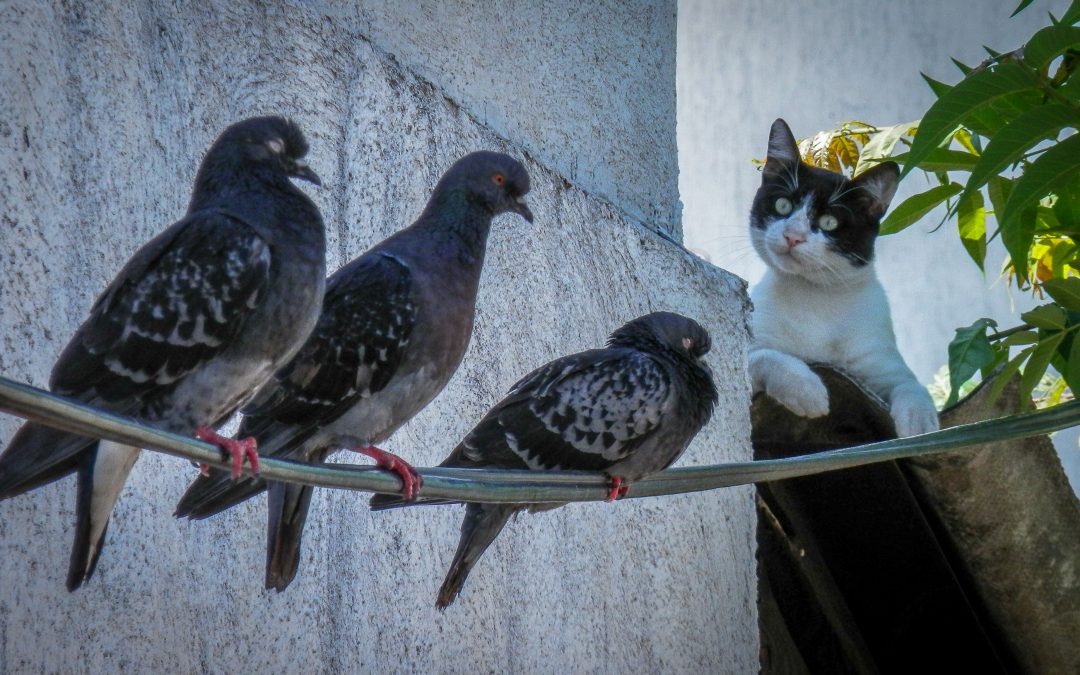The domestic cat has been added to the non-native species database compiled by the Institute of Nature Conservation at the Polish Academy of Sciences (PAN), Poland’s leading academic body, thereby qualifying cats as an “invasive non-native species”.
However, after the news caused confusion and concern among pet owners, the country’s environmental protection agency has clarified that the decision does not introduce any additional requirements or restrictions as cats are still not on the official national or European list of invasive foreign species.
Pojawiła się informacja, że w Polsce kot jest gatunkiem inwazyjnym. Hym… tylko kot? A właściciel nie? https://t.co/SHvrXXYw3l
— Adam Szejnfeld (@szejnfeld) July 17, 2022
Domestic cats, which are often allowed to roam freely outside, kill more than 630 million mammals and more than 140 million birds in Poland every year, according to a study published in international scientific journal Global Ecology and Conservation in 2019.
Earlier this month, Rafał Maciaszek, a biologist specialising in invasive species at Warsaw University of Life Sciences (SGGW), revealed that domestic cats had been added to PAN’s list of alien species, which has been compiled since 1999.
“Including the domestic cat in the non-native species database…kills the arguments raised, for example, by local authorities, who claim that the stray, feral domestic cat is a natural element of Polish nature,” he told Gazeta Wyborcza. “It does not allow it to be treated equally with the wildcat and lynx, which are native species.”
Last year, it was revealed that the authorities in Warsaw spent almost 1.6 million zloty (€355,000) in 2020 on feeding the city’s 30,000 free-roaming cats. Other Polish cities have introduced similar schemes, arguing that the animals are an important part of the ecosystem.
When legislation was put forward by Poland’s main opposition party last year for cats to be legally recognised as “an integral part of the urban ecosystem”, it was criticised by a number of scientists, who pointed out that domestic cats are an alien species.
Maciaszek notes that the domestic cat does not have a natural habitat as it has been bred for thousands of years and was significantly altered by humans. Hence, it is a non-native species to natural ecosystems.
Following reports of the cat’s inclusion on the PAN invasive non-native species list, Poland’s General Directorate of Environmental Protection, a government agency, issued a statement to clarify “misunderstandings” and reassure concerned pet owners.
It noted that, because domestic cats are not included on official national or EU lists of invasive species, they are not subject to any resultant restrictions and permits are not needed to own, buy or sell them.
The authority, nevertheless, emphasised that “domestic cats can pose a serious threat to wildlife – especially birds – and should therefore not be let outdoors by their owners without proper supervision”.

Alicja Ptak is deputy editor-in-chief of Notes from Poland and a multimedia journalist. She has written for Clean Energy Wire and The Times, and she hosts her own podcast, The Warsaw Wire, on Poland’s economy and energy sector. She previously worked for Reuters.




















